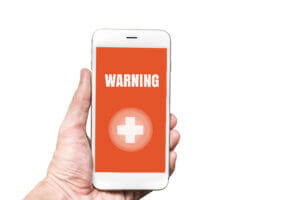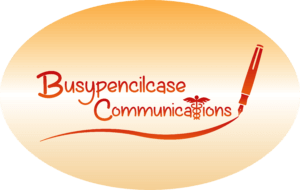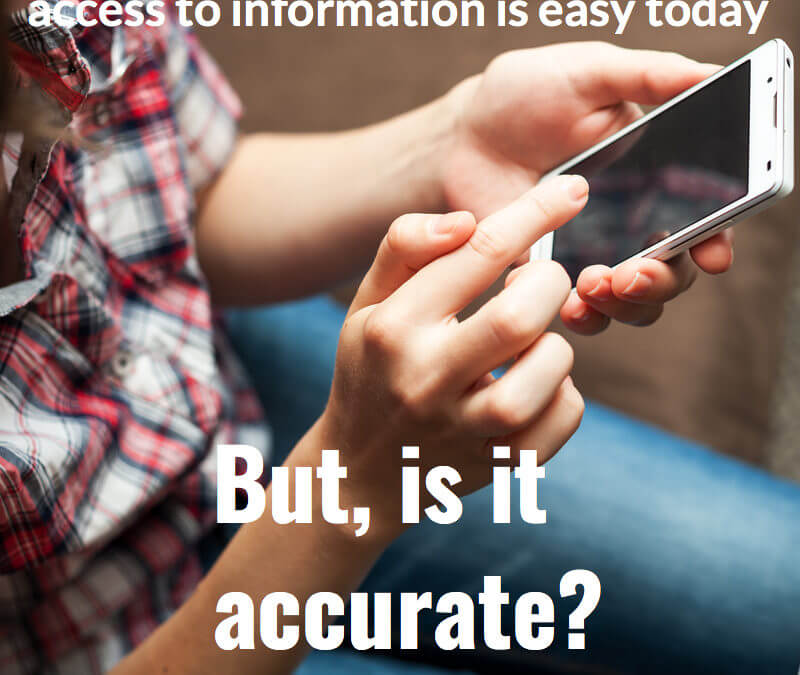Reaction, ridicule and disappointment
Accessing the internet a problem? Not today but years ago when it came to talking to health care professionals reactions varied. Information is easy to acquire today; but is is accurate? You face your doctor having just taken a seat and pull out a stream of information you have painstakingly run off. Being a helpful person you pass this treasure trove over and he tosses it into a corner without bothering to look at it!
Systematic searches instead of accessing the internet
So what is the reality behind patients doing their own research? Well I can say it is going to be mixed. In the nineteen eighties I supplied one patient, Melissa, with information I had personally researched about a condition called Complex Regional Pain Syndrome. It was a very unpleasant problem for the 14-year-old and I felt mother required the most up to date information. I was a junior podiatric surgeon at the time. The GP, Dr McClintock, took exception to this Samaritan act even though I was sharing the care. He phoned me up to give me a piece of his mind and informed me that he would never refer a patient to me again. I was 31 years of age and felt humiliated and guilty. I had, so he accused me, betrayed the trust of the doctor-patient? Years later I reflected and believe the roles were in fact reversed and he had in fact broken the medical code known as the Hippocratic Oath in some small measure.
What about Today?

Accessing the Internet is no longer a problem, but we must head warnings about the accuracy
Of course, the tale and accessing the internet was not as easy as it is today. I became a consultant seven years later after the Melissa event and after a long career giving advice, meeting patients as well as consulting others as a patient myself I feel differently about patient acquired information. The McClintocks of this world is fortunately disappearing and replaced by a more rational type of GP. However, there are attitudes that still hold the view that the internet is a dangerous place. My articles for Melissa were not taken from the internet but were actually medical library searches and therefore bone fide medical articles from which Dr McClintock could have gained reflective education. In the first place let’s look at attitudes and then look at quality of evidence.
Attitudes from health care providers
It may not be a doctor, it could be a specialist or an allied medical professional (podiatrist, physiotherapist). A GP is a generalist with at least one area of specialty, a consultant is a specialist with one major area of specialty. The generalist knows a little about a lot, the specialist a lot about a little. Don’t assume that the word little means that knowledge is belittled, but it is hard for anyone in healthcare to know everything in a reliable way. The doctor who admits their own limitations is one to respect and therefore it is unlikely that your piece of research, when presented, will be ridiculed, disrespected or ignored.
When it comes to the specialist, their area of knowledge is likely to be more extensive and so the value of your research needs to be tempered against this likelihood. Of course, there is no accounting for the McClintocks of this world. They still exist and may take the view don’t insult my knowledge, or more likely, you have to be trained to understand all the nuisances of scientific articles. Then there are the articles in newspapers and online searches like Wikipedia. The Wikipedia example is but one as many exist. A balance between the value, the accuracy and the interpretation of information lies behind the concern the clinician has about patients taking a wrong turn. On balance, self-research leads to better questions being asked with a productive open debate, and an improved understanding of shared care. Of course, the limitations of the so-called 10-minute consultation appointment at a GP’s surgery can impede this whole process of sharing information and having a quality discussion.
Accessing the internet to find people
My father saw an advert to help his Aged Macular Degeneration (AMD). Determined to seek advice he set off to see the medical expert on Harley Street. This is the alleged private medical capital of the largest city in the UK. The address label, a notable brand, speaks with some volume. My (then) 88-year-old father was swayed by the majesty of the location if not the promise to have his sight restored. His goal, is to drive again. For once I was allowed to accompany him and listened to the ophthalmic surgeon with interest. My father had an assessment that cost him the best part of £300 and a clear nod by the doctor that for £15000 he could have both eyes treated with a new lens. Now call me a cynic but I saw the smooth-talking professional as a salesman and something was not quite right. Many medical conditions cannot be fixed and AMD is one that we are still learning about. The articles my father had read were testimonials, one of which was highly persuasive from an actress. I pressed for a published scientific review. This was promised and then delayed. When something finally was published it opened up a can of worms! This was the reaction from others in the ophthalmic community.
If it sounds too good to be true, then often it is true that the promise
I advised my father to see a colleague, a listed consultant at my own hospital. I was friendly with the ophthalmic department because we often met over lunch, while feet and eyes were unrelated, and we enjoyed sharing experiences. Many miles away from Harley Street, my colleague advised my father with caution. If he had the new optical treatment he would no longer be able to use his motability scooter. The lens would remove his peripheral vision in favour of his central vision making him unsafe as a road user. If it sounds too good to be true, then often it is true that the promise may need careful interpretation. The end of the story came several years later when the salesman comes medical doctor was judged by his peers through the General Medical Council and struck off!
Quality of evidence
- There is a test that might be of value that anyone can use. Do the local specialists know of the new treatment and what is their collective attitude?
- Is the condition and treatment recognised by the National Institute for Health and Care Excellence (NICE)?
- Is the treatment recognised by the National Health Service?
- Are there any publications in scientific/medical journals?
Acid test
Is the treatment part of a paid sales advert? These often appear in tabloid papers. The paper will take a fee from the consultant/health professional and profile the product and the name of the professional offering the care. These forms of articles are the most unreliable IF they do not meet the four criteria above. Check out my article on What should you ask from a fact sheet?
How to approach a professional?
We all want a good experience and do not want to feel ridiculed. It is good to research a condition largely so that you can ask questions. As a consultant, I was asked many times about treatment for foot problems. Did it work? Had I heard of it? My patients wanted to know their options. Avoiding surgery is important for all of us. How well does something work? Is it reliable? Are there side effects? Do I have to pay? How much does it cost?
The experimental treatment is difficult to enrol in and can only be accessed on a strict trial basis governed by ethics. Seemingly the ophthalmic surgeon (above) had not adhered to the strict provisions of the code of ethics that science must follow. Ethical codes are strictly monitored to protect patients, but people can bypass regulation and this is where caution is met from regular health professionals as to the false promises and misleading facts.
In truth, until a product or treatment has been reviewed extensively over a long enough period, using what is known as a randomised trial, we should remain open to caution. In the pharmacy business, all drugs are tested against a harmless placebo so that patients do not know what their medicine is. If the placebo is equally successful, then the new medicine is regarded with suspicion. Of course, this is a simplification of the methodology. Ask the doctor questions that you have procured from any downloads. Try to recall or make keynotes only. Write these down and use the notes as a prompt as you discuss your subject but identify any sources openly.
“I understand that there is a new treatment for X, do you consider this a possibility in my case?”
Internet research
 It is generally better to use 2-3 different sources as a cross-check. Be careful of testimonials, these are not reliable and may be bought, or could be personal favours or even fictitious! If the material has no background references or sources from which information has been gathered, take a cautious view as this means it has not been Peer Reviewed. Peer Review means the subject had been considered by at least two independent people in the same specialty who have no vested (including financial) interest.
It is generally better to use 2-3 different sources as a cross-check. Be careful of testimonials, these are not reliable and may be bought, or could be personal favours or even fictitious! If the material has no background references or sources from which information has been gathered, take a cautious view as this means it has not been Peer Reviewed. Peer Review means the subject had been considered by at least two independent people in the same specialty who have no vested (including financial) interest.
Modern journals are often Open Access which means the public can download scientific journal articles. This type of source is the most reliable. Your interpretation may need to be verified by again making notes and asking your health professional. All health professionals with first and second degrees are trained in reading research papers. This means understanding basic statistics and sifting falsehood from truth.
Back in the consulting room
Should we access the internet before seeing our doctor or health professional?
Don’t produce that thick sheaf of paperwork, even if your doctor is a decent type of person you think you could go for a drink with. Keep your material to yourself but make sure you peel away the principle questions that help validate or verify whether a new treatment is worth pursuing. Good luck and YES do share information, modern medical practice benefits from sharing and working with patients.
If you found this interesting you can also read Communication and information for your patients and Are Podiatry on-Line Consultations a Good Idea? related to the subject of communication.
Thanks for reading ‘Accessing the internet a problem?’ by David R Tollafield
Published by BusypencilCase Reflective Communication (Est. 2015)
30 April 2020

sign-up today and stay in touch




Recent Comments